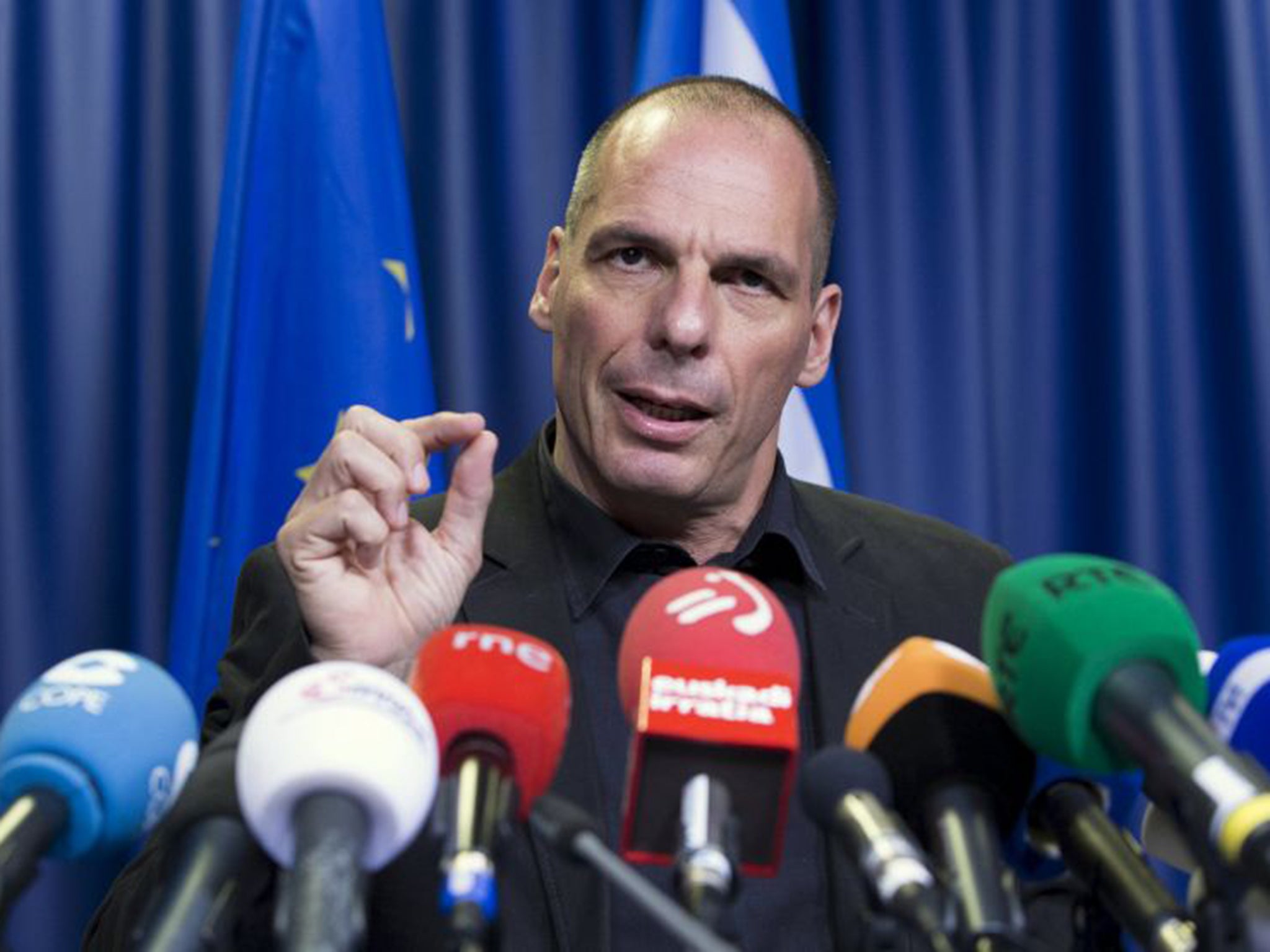Greece debt crisis: IMF calls for 20-year grace period before debt repayments
The IMF calculations reveal that Greece’s enormous debts are 'unsustainable', and would be all but impossible to pay off

Your support helps us to tell the story
From reproductive rights to climate change to Big Tech, The Independent is on the ground when the story is developing. Whether it's investigating the financials of Elon Musk's pro-Trump PAC or producing our latest documentary, 'The A Word', which shines a light on the American women fighting for reproductive rights, we know how important it is to parse out the facts from the messaging.
At such a critical moment in US history, we need reporters on the ground. Your donation allows us to keep sending journalists to speak to both sides of the story.
The Independent is trusted by Americans across the entire political spectrum. And unlike many other quality news outlets, we choose not to lock Americans out of our reporting and analysis with paywalls. We believe quality journalism should be available to everyone, paid for by those who can afford it.
Your support makes all the difference.Just three days ahead of a hastily-called referendum on Greece’s bailout, the International Monetary Fund said in a report Greece needs €50bn in extra funds over the next three years, and should be granted a 20-year grace period before making any debt repayments. The IMF calculations reveal that Greece’s enormous debts are “unsustainable”, and would be all but impossible to pay off.
Although the IMF has been the most demanding of Greece’s creditor institutions over the past five years, insisting Athens must sign up to reforms before getting any loans or aid, the analysis is likely to be interpreted by Greek Prime Minister Alexis Tsipras as an argument for putting debt relief at the heart of any solution to the crisis.
The Washington-based institution says Greece’s finances have deteriorated so much that any final payments of Greece’s debts should not take place until 2055. “Given the fragile debt dynamics, further concessions are necessary to restore debt sustainability,” it says. Even with the best loans terms, Greece’s debt-to-gross domestic product ratio would only fall from 175 per cent of GDP today to 150 per cent in 2020, the IMF report says.

The report was written before Greece defaulted on an IMF loan, called a referendum on its creditors’ proposals, closed the banks and imposed capital controls. The IMF’s own head, Christine Lagarde, was still taking a hard line on Greece on 1 July, saying that it would “be preferable to see a deliberate move towards reforms” before debt relief.
But the report echoed the position of Greek Finance Minister Yanis Varoufakis, who said that a “no” vote in the poll would lead to an end of pretences that Greece’s debts can be repaid through extended bailouts. “What we are saying to the Greek people is no more extend and pretend. Please back us,” he said. Mr Varoufakis also pledged to resign if his country votes “yes” to the bailout plan proposed by international lenders last week.
On 1 July, Greece defaulted on a €1.55bn loan to the IMF, making it the first developed country to do so in the Fund’s history. The latest polls ahead of the referendum reveal a narrow lead for the “yes” camp, with 47 per cent of voters for the bailout, and 43 per cent against. Meanwhile, two former Greek prime ministers, both from the conservative New Democracy party, have joining the fray, urging a “yes” vote: Antonis Samaras, who was ousted as premier by Mr Tspiras in January, and Kostas Karamanlis, prime minister from 2004 to 2009, both said a “no” vote would mean Greece leaving the euro.
Subscribe to Independent Premium to bookmark this article
Want to bookmark your favourite articles and stories to read or reference later? Start your Independent Premium subscription today.
Join our commenting forum
Join thought-provoking conversations, follow other Independent readers and see their replies
Comments